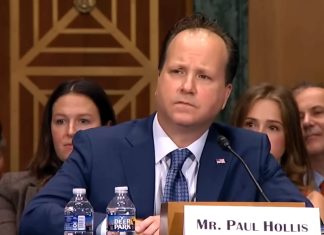Traders returning to work on Monday found largely the same conditions that they had left work amid on Friday; no resolution to the Libyan upheaval, continued weakness in the US dollar, and suggestive coming from various Fed ‘factions’ as regards the prospect for a change in US interest rates.
 Mr. Gaddafi remained in power despite having lost control of all but Tripoli (and having all of his UK assets frozen) and crude oil prices were largely stable as the rest of OPEC appeared set to fill the gap which Libya’s turmoil has engendered.
Mr. Gaddafi remained in power despite having lost control of all but Tripoli (and having all of his UK assets frozen) and crude oil prices were largely stable as the rest of OPEC appeared set to fill the gap which Libya’s turmoil has engendered.
The US dollar drifted lower as currency market bettors saw the euro benefiting from a possible rate hike sooner rather than later (see below), and Friday’s hawkish tone by a normally ‘dovish’ Janet Yellen was tempered by Mr. Dudley this morning, after he said that rapid economic recovery in the US ought not to imply the immediate tightening of monetary policy by the Fed. However, that same Mr. Dudley also warned that financial markets "should not doubt" the Fed’s ability to tighten "in a timely fashion" should inflation present any signs of rapid vertical takeoff.
Such signs, for example, have been on ample display in China (and India as well) and the weekend was not lacking in anti-inflation tough-talk from that country’s political and financial leaders either. In fact, Premier Wen declared that in order to ease inflationary pressures, his government is now willing to target a significantly weaker level of Chinese economic growth over the next half-decade. Therefore, the hiking of reserve requirements and of key interest rates in China remains very much on the table.
Chinese GDP targets have now been dialed back to a 7% growth rate for the period between 2011 and 2015 and that is quite a contrast to the 11.1% pace of growth that the country recorded in the 2006-2010 period. Premier Wen also noted that "growing [wealth] inequality threatens stability in Chinese society." There have been reports of some recent pockets of unrest in urban Chinese locations, and they are thought to be inspired by events in the MENA region.
Moreover, it is being reported by Reuters this morning that:
"China cannot invest much of its foreign currency riches in the global commodities market, because doing so would only push up the prices of the raw materials that the economy depends on." according to the country’s top money manager.
Mr. Yi Gang, Head of the State Administration of Foreign Exchange (SAFE –now that’s an appropriate acronym, if there ever was one) speaking on Saturday. He also said that monetary easing in wealthy countries was driving down China’s returns on its $2.85 trillion in official currency reserves, the world’s biggest such stockpile." In plain English, Mr. Yi Gang called for an end to "easy money" in the West.
India‘s economy shows similar signs of cooling-by-intervention this morning, following a reported economic growth rate of only 8.2% in QIV of 2010 –down from 8.9% in QIII. Marketwatch reports that "the slowdown came after the Reserve Bank of India raised its benchmark lending rates in seven equal installments of 0.25 percentage point since the beginning of 2010 to check rising prices."
Just how the imminent reality of lower Chinese and Indian GDP growth is still able to fuel bullish-to-the-extreme market talk and forecasts among…commodities’ oriented players on the other hand, remains a bit of a mystery at this point.
The developing interest rate "situation" is largely similar in the EU, where it is said that "the path is open for the ECB to return to the path of monetary normalcy quicker than expected. The overriding view among market pundits is for the ECB to raise rates, come the month of May or June. Such a move is thought to coincide with the nomination and eventually likely appointment of Mario Draghi.
Meanwhile, French President Nicolas Sarkozy said during a visit to Ankara on Friday that he had asked Turkey to host a ministerial seminar with Russia in April oncommodities regulation as part of France’s G20 presidency.
According to Reuters, "increasing the regulation of commodities markets is one of the main planks of France’s year-long G20 presidency, but ministers responded cautiously to calls for curbs on price volatility when they met in Paris last weekend."
The emergent trend towards the normalization of interest rates and attempt to rein in runaway commodities’ speculation is also manifest in other countries. Brazil and Russia have recently lifted their key rates, and Thailand has now joined in with its own assessment that rates will need to rise in order to neutralize manifest inflationary threats.
All of that type of talk and statistical reality aside, the bullish posturing in gold (mainly) by speculative hedge funds remained at or near highs not seen since last December as the final trading session of February got underway. The month showed gains in the speculative net long gold positions as unrest in North Africa and the Middle East drove funds back into the yellow metal and made for five weeks’ worth of gains in prices. January’s 6%+ losses in value were nearly reversed by February’s 5%+ gains. One veteran observer pointed out that bullish chatter trotted out all of the usual fear (and greed) inducing arguments during the month, and then some.
The Value View Gold Report noted that –according to alarmist "promoters" for whom every new world development is cause for the issuance of uber-bullish forecasts — there were declarations made that:
"all the despots in the Middle East were to be removed, chaos was to follow, oil production in that area would be drastically reduced, famine would be widespread, and that the logical conclusion of all that was to buy junior mining stocks. [The] favorite [one] was that the Egyptian situation would cause silver, junior mining stocks, and green energy plays to explode. All those ideas were pursued till about middle of this past week when apparently a significant part of the investment community decided the nonsense had gone too far."
Still, no significant additions were reported in gold-oriented ETF balances during the month, and that fact has some market watchers remaining on alert. More than 109 tonnes in such balances have been lost since the peak tonnage that was recorded last June amid the EU‘s debt woes. That said, Friday night’s Elliott Wave-based short-term analysis indicated that there might be some scope for gold to now rise to somewhere between $1,529.00 to $1,547.00 unless the late January low near $1,308.00 is soon taken out, undermining that potential and tilting the trend back towards lower value zones. Gold’s 200-day moving average is currently near $1,303.00 per ounce.
As of this writing, spot gold oscillated between the $1,406 and $1,417 posts — but mainly around the $1,415 level that it also opened at. Silver advanced 56 cents to reach $33.96. Platinum dropped $2 to the $1,803 mark while palladium was able to rise $9 to the $798.00 per ounce bid quote. No change was reported in rhodium this morning ($2,380.00 on the bid-side). The metals continued to look for guidance to come from crude oil and the dollar, while also taking note of the rising chorus of hawkish central banker talk.
Bloomberg reported that "U.S. automobile sales in February may approach the fastest pace since the government’s "cash for clunkers" program as rising consumer confidence spurs purchases."
The sales data for U.S. light-duty vehicle deliveries will be available tomorrow morning, but the consensus among analysts is that America is on track to report an annualized sales run level of roughly 12.4 million vehicles (it ran at 12.6 million in January and in December). The "C-4-C" program boosted vehicle sales in the US up to an annualized 14.2 million level. Keep them’ big (and little) wheels rollin’…
Someone else who sees America’s wheels (and not just the automotive ones) rollin’ along quite nicely, is one Mr. Warren Buffett. Yes, the man who bought oodles of silver once upon a time (and then sold it all at a nice profit) is now busy reassuring today’s panicking small investor that Armageddon is not quite at hand, as some would try to declare.
Mr. Buffett wrote in his firm’s annual report to shareholders that:
"the prophets of doom have overlooked the all-important factor that is certain: Human potential is far from exhausted, and the American system for unleashing that potential — a system that has worked wonders for over two centuries despite frequent interruptions for recessions and even a Civil War — remains alive and effective. Now, as in 1776, 1861, 1932, and 1941, America’s best days lie ahead."
If there was one note of negativity in Mr. Buffett’s writing, well, it was reserved for a by-now-familiar subject of criticism and unmasking in these columns: the world ofhedge funds — a world that in Mr. Buffett’s words has witnessed some "terrible behavior."
Until tomorrow, do behave,
Jon Nadler
Senior Analyst
Kitco Metals Inc.
North America
www.kitco.com and www.kitco.cn
Blog: http://www.kitco.com/ind/index.html#nadler










